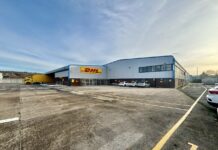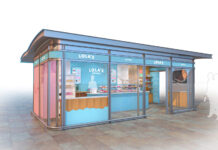The retail industry is rapidly shifting towards sustainable practices, especially in transportation. With increasing environmental awareness, businesses are seeking innovative solutions to reduce their carbon footprint. Sustainable transportation not only benefits the planet but also enhances operational efficiency and cost-effectiveness.
Electric Vehicles
Electric vehicles (EVs) are at the forefront of sustainable transportation. Retailers are investing in EV fleets to reduce greenhouse gas emissions and lower fuel costs. These vehicles, powered by electricity, produce zero tailpipe emissions, making them an eco-friendly alternative to traditional diesel or petrol-powered vehicles.
Switching to electric vehicles also provides financial benefits. With lower running costs and government incentives, EVs are an economically viable option for retail transportation. By adopting electric fleets, retailers can significantly reduce their environmental impact while enjoying long-term savings.

Optimised Delivery Routes
Optimising delivery routes is another effective way to enhance sustainability in retail transportation. Advanced route planning software allows retailers to minimise driving distances and reduce fuel consumption. By calculating the most efficient routes, these tools help decrease carbon emissions and improve delivery times.
Implementing optimised delivery routes can also enhance customer satisfaction. Faster and more reliable deliveries improve the overall shopping experience, fostering customer loyalty. Retailers that invest in route optimisation technology not only contribute to environmental sustainability but also gain a competitive edge in the market.
Alternative Fuels
Alternative fuels, such as biodiesel, compressed natural gas (CNG), and hydrogen, offer sustainable options for retail transportation. These fuels produce fewer emissions compared to conventional diesel or petrol, making them a greener choice for delivery vehicles. Retailers adopting alternative fuels can significantly reduce their carbon footprint.
Biodiesel, derived from renewable sources like vegetable oil, can be used in existing diesel engines with minimal modifications. CNG and hydrogen-powered vehicles, although requiring specialised infrastructure, provide long-term environmental benefits. Retailers can choose the most suitable alternative fuel based on their specific needs and resources.
Transport Management Systems
Transport management systems (TMS) play a crucial role in sustainable retail transportation. These systems optimise logistics operations, improving efficiency and reducing environmental impact. TMS solutions enable retailers to monitor and manage their fleets, ensuring optimal performance and minimal fuel consumption.
Geo2 provides advanced TMS solutions that help retailers streamline their transportation processes. By integrating TMS into their operations, retailers can achieve better route planning, vehicle tracking, and load optimisation. This not only reduces emissions but also enhances overall operational efficiency, contributing to a more sustainable retail industry.
Urban Consolidation Centres
Urban consolidation centres (UCCs) are facilities located on the outskirts of urban areas where goods from multiple suppliers are consolidated before final delivery. This approach reduces the number of delivery vehicles entering city centres, decreasing traffic congestion and emissions. Retailers using UCCs can significantly improve their sustainability efforts.
UCCs also offer economic benefits by reducing transportation costs and improving delivery efficiency. By consolidating goods, retailers can optimise load capacities and minimise the number of trips required. This not only lowers fuel consumption but also enhances service levels, providing a more reliable and sustainable delivery solution.
Last-Mile Delivery Innovations
Innovations in last-mile delivery are transforming retail transportation. Drones and autonomous vehicles are emerging as viable options for sustainable delivery. These technologies can reduce reliance on traditional delivery vans, cutting down emissions and traffic congestion in urban areas.
Drones offer a quick and efficient solution for delivering small packages, especially in hard-to-reach locations. Autonomous vehicles, equipped with advanced sensors and navigation systems, can operate with minimal human intervention, reducing labour costs and environmental impact. Retailers adopting these innovations are setting new standards for sustainable last-mile delivery.
Freight Consolidation
Freight consolidation involves combining multiple shipments into a single load to maximise vehicle utilisation. Retailers can partner with logistics providers to consolidate their freight, reducing the number of trips and associated emissions.
By implementing freight consolidation, retailers can achieve better load efficiency and minimise empty runs. This approach enhances supply chain performance and contributes to environmental conservation. Retailers focusing on freight consolidation demonstrate a commitment to sustainability and operational excellence.
Collaborative Logistics
Collaborative logistics involves multiple retailers sharing transportation resources to optimise efficiency and reduce environmental impact. By pooling deliveries and coordinating shipments, retailers can minimise the number of vehicles on the road, cutting down emissions and traffic congestion.
This approach also offers cost-saving benefits. Shared transportation resources reduce fuel and labour costs, providing economic advantages for all participating retailers. Collaborative logistics fosters a sense of community and shared responsibility towards sustainability, paving the way for a greener retail industry.
Green Warehousing Solutions
Green warehousing is an integral part of sustainable retail transportation. By implementing eco-friendly practices in storage and distribution centres, retailers can further reduce their carbon footprint. Techniques such as energy-efficient lighting, solar power installations, and advanced insulation can significantly lower energy consumption.
Additionally, green warehousing promotes the use of sustainable materials and waste reduction strategies. Recycling programs, biodegradable packaging, and digital inventory systems help minimise environmental impact. By adopting these practices, retailers can create a more sustainable supply chain, aligning their operations with broader environmental goals and contributing to a greener future.
The Takeaway
Sustainable transportation solutions are essential for the retail sector’s future. By adopting electric vehicles, optimising delivery routes, using alternative fuels, and leveraging transport management systems, retailers can significantly reduce their environmental impact. Urban consolidation centres, last-mile delivery innovations, freight consolidation, and collaborative logistics further enhance sustainability efforts.





















